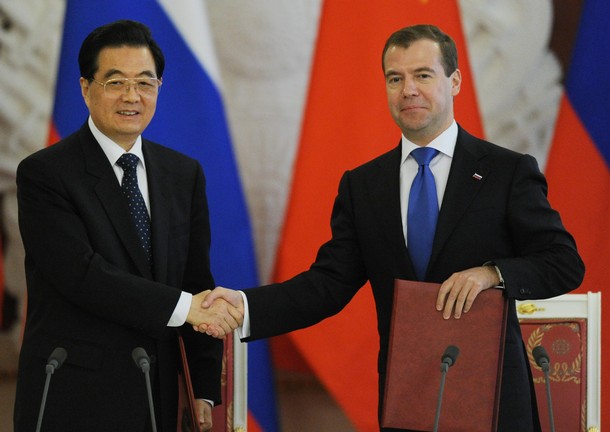
From Dmitri A. Titoff, atlantic-community.org: When SCO emerged at the turn of the century, some Western observers worried that its key founders, Russia and China, plotted an anti-NATO bloc. They didn’t. SCO’s primary objective has always been to preserve the status quo in Eurasia, which is threatened both by fundamentalist currents and rapidly changing balance of power amidst Russia’s decline and China’s expansion. . . .
As much as Central Asian states and Russia benefit from SCO, China benefits the most. The Celestial Empire has used the organization to manage its expansion in a way that does not elicit excessive fears from other members. One of SCO’s key successes was to oversee the demarcation and demilitarization of borders, among other borderline issues. For example, in a century-long border dispute between China and small Tajikistan, the latter ceded only one percent of its land to China, which initially claimed five. The deal was hailed as a "success for Tajik diplomacy".
Should China and the United States come to blows over something in the future, China would want Russia and Central Asian republics to assume benevolent neutrality in that circumstance. It is in China’s interest to maintain cordial relations with the region’s countries, which it can do by issuing generous unconditional loans. Given that China’s trade with Russia is relatively low despite their proximity, the former has the economic space to butter up the Russian elites. Presently, Russia supplies only 10 percent of China’s oil imports.
Richard Weitz of Hudson Institute, who probed numerous officials in Moscow at the meeting of the Defence and Security section of the Valdai International Discussion Club, noted that they do not at all view China as a threat, even though China has copied much of Russia’s exported weaponry and now can manufacture its own. At least in public they continue to say that China’s rise is a stabilizing factor in Asia. What worries Moscow the most is the risk of instability in Central Asia. If China’s leaders are smart, they will continue supporting Moscow’s concerns, reassuring the Russians of China’s commitment to the preservation of status-quo.
Dmitri Titoff has an MA in Diplomacy and has interned with the Hudson Institute, Washington, D.C. (photo: Getty)
Image: getty%207%2011%2011%20Hu%20Jiintao%20Dmitry%20Medvedev.jpg
